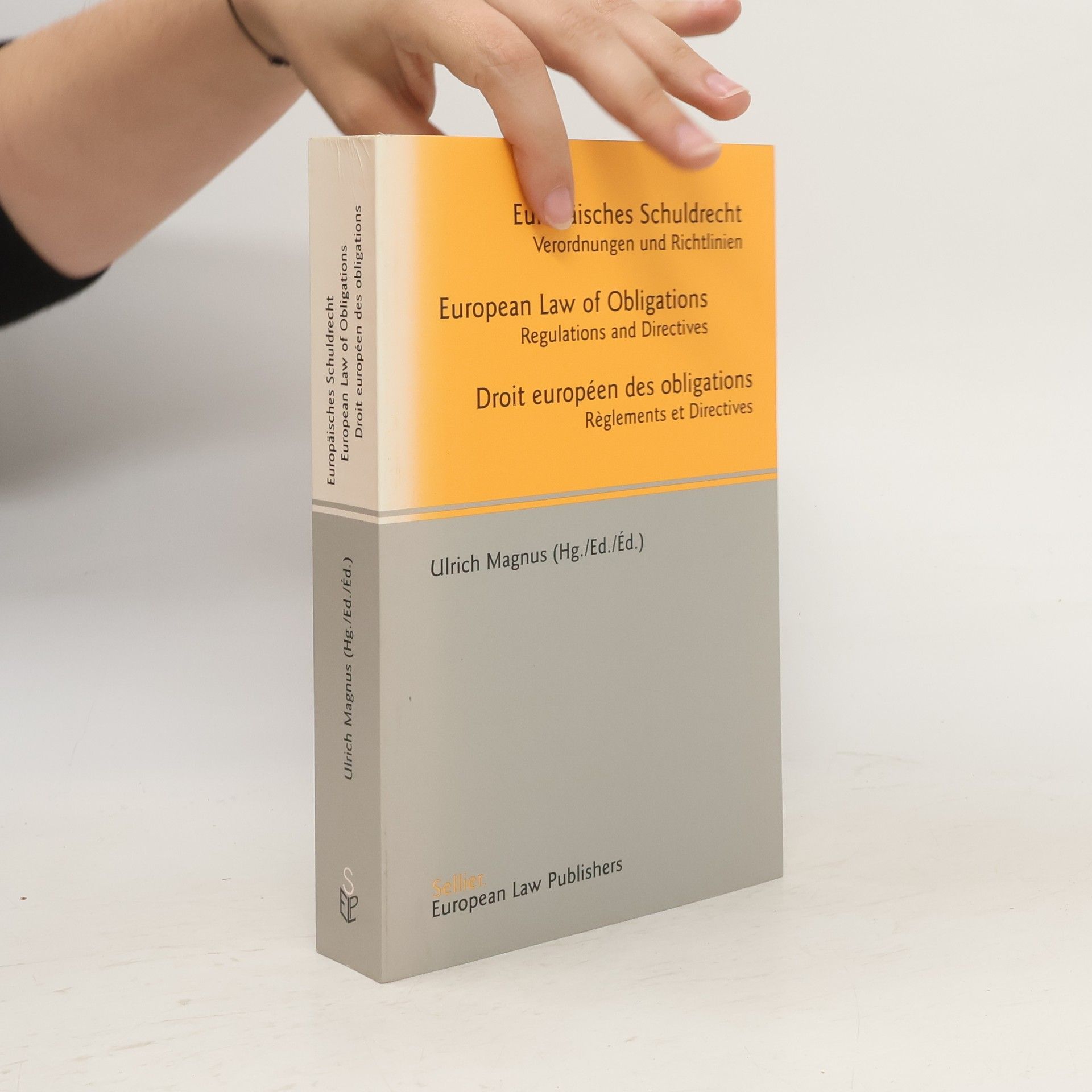Ulrich Magnus Libri





Grundlegend überarbeitet präsentiert sich der Band "Internationales Wirtschaftsrecht". Nicht nur die dem Konzept eines einheitlichen Wirtschaftskollisionsrechts entsprechende umfassende Darstellung sowohl der Kollisionsrechte des Kartellrechts und Lauterkeitsrechts als auch des Marken-, Urheber- und Patentrechts zeichnet das Werk aus. Die Darstellung bietet zudem, für das Staudingergesamtwerk typisch, auch eine Synthese aus wissenschaftlicher Durchdringung und Praxisnähe. Eingearbeitet sind die ersten Erfahrungen mit der Anwendung der neuen Rom II-Verordnung.
Europäisches Schuldrecht
- 830pagine
- 30 ore di lettura
Das Werk umfasst 27 Verordnungen und Richtlinien zum Europäischen Schuldrecht in Deutsch, Englisch und Französisch. Es richtet sich an Praktiker, Forscher und Studierende und reflektiert die zunehmende Rechtsangleichung in der EU. Viele schuldrechtliche Regelungen in den Mitgliedstaaten basieren bereits auf europäischen Richtlinien, die gemäß der Rechtsprechung des EuGH richtlinienkonform auszulegen sind. Dies bedeutet, dass abweichendes nationales Recht nicht zur Anwendung kommen darf. Bei Auslegungszweifeln sind diese im Lichte der entsprechenden Richtlinie zu klären. Die Sammlung bietet einen vereinfachten Zugang zu den relevanten Texten und berücksichtigt den Wortlaut in allen Amtssprachen, um Unklarheiten zu beseitigen. Zudem dient sie der wissenschaftlichen Forschung und systematisiert die Verordnungen nach Teilbereichen des Schuldrechts. Lehrpläne an juristischen Fakultäten integrieren zunehmend europäisches Schuldrecht, und die Sammlung bietet dazu kursbegleitendes Material. Die Texte sind nach den Bereichen Vertragsschluss, Vertragsinhalt und besonderen Vertragsverhältnissen gegliedert, mit einem eigenen Abschnitt zu elektronischem Geschäftsverkehr und Datenschutz. Auch das europäische Deliktsrecht wird behandelt. Der Herausgeber Ulrich Magnus ist Professor in Hamburg und Richter am Hanseatischen Oberlandesgericht. Die Sammlung ist offen für zukünftige Entwicklungen im europäischen Recht, um schrittweise die Grundlage
Internationales Wirtschaftsrecht
IPR des KartellR, LauterkeitsR, MarkenR, PatentR und UrheberR
Die Neubearbeitung 2015 enthält eine monographische Gesamtdarstellung des IPR des Wettbewerbsrechts und des Immaterialgüterrechts. Auf aktuellem Stand von Rechtsprechung und Lehre und ausgehend von dem Phänomen der Globalisierung als einem internationalprivatrechtlichen Theorieansatz werden die unterschiedlichen Teilrechtsgebiete unter Einbeziehung der dynamischen Entwicklungen im internationalen Verfahrensrecht erläutert.